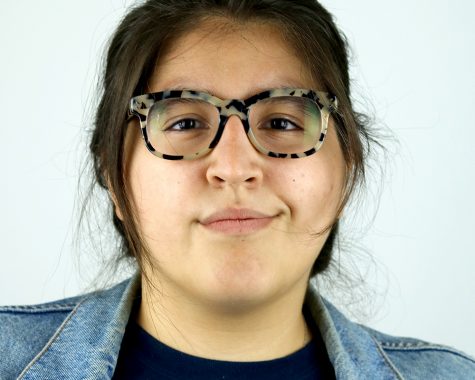Nursing students get head start on baccalaureate education
April 11, 2016
Nursing students, who are seeking an associate degree at a chosen community college, now have the opportunity to enter a dual track program, giving them a head start on a baccalaureate education.
Last week, representatives from Eastern, the Danville Area Community Colleges and Illinois Eastern Community Colleges signed an agreement that will admit two-year track nursing students into Eastern’s R.N. to B.S. nursing program after finishing one year at their respective community colleges.
Renee Kidd-Marshall, the director of the nursing program at Eastern, said this dual track program has been in the works for quite some time and is based on provisional admission, meaning students will have to meet certain standards before they are fully admitted.
These standards include earning at least a 2.5 GPA, passing their National Council Licensure Examination and having liability insurance.
“It just accelerates the whole process of completing a baccalaureate degree,” Kidd-Marshall said.
According to a press release, in 2010 the National Institute for Medicine released a report stating that the number of baccalaureate-degree nurses in the workforce will increase to 80 percent by 2020.
The committee in charge of the report said nurses must obtain higher levels of education in order to meet the demands of a changing healthcare system.
“(This program) facilitates that and it is a way to promote further education,” Kidd-Marshall said. “This is an opportunity for nurses to complete the associate’s degree and get their baccalaureate degree.”
Kidd-Marshall said since the program is focused on the student’s needs, the courses are offered online.
This makes it convenient for students who may already be in the workforce, allowing them to work while completing their degree, Kidd-Marshall said.
“Our delivery method is wonderful,” Kidd-Marshall said. “We do synchronous and asynchronous so students have the opportunity to attend the class in an online classroom, but if they are unable to do so we can record that session and they can view it later.”
The courses are writing-centered and there is a lot of research involved because the profession of nursing involves taking care of people, Kidd-Marshall said.
“We’re an evidence-based practice, which means we take the research, we look at it and our students can critically analyze it and apply it,” Kidd-Marshall said.
She said there is a mixed population of learners who will be taking the courses from novice to experienced nurses who will share ideas and enrich each other’s education all while in an online format.
Kidd-Marshall said there are as many benefits in an online course as there are in a classroom setting, if not more.
She said the students will have discussion questions and they generate questions among themselves, along with those driven by the faculty.
“It’s just an exchange of information and viewpoints,” Kidd-Marshall said.
She said because of the flexibility of the program, students will likely stay in it, however if they needed they could jump out and jump back in at any time.
As for the misconceptions about nursing, Kidd-Marshall said the profession is a blend of soft sciences and hard sciences as well as a dash of humanities.
“It’s much more than just learning a set of technical skills,” Kidd-Marshall said. “A nurse is an advocate for the client.”
Kidd-Marshall said the nursing courses are centered on evidence-based practices and community health, leadership and management, healthcare policy and politics.
“They have the basic skills but we expand upon those concepts,” Kidd-Marshall said.
The program is expected to kick off this fall, but Kidd-Marshall is already meeting with students this week who are interested in the program.
“I’m excited,” Kidd-Marshall said. “I just hope that we can expand.”
Analicia Haynes can be reached at 581-2812 or [email protected]

















































